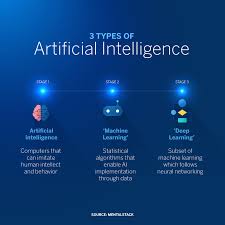
The Transformative Impact of AI Technology on Modern Society
The Rise of AI Technology
By USAFirst.News Staff
Introduction to AI
Artificial Intelligence (AI) technology has rapidly evolved over the past few decades, transforming from a theoretical concept into a practical tool that impacts various aspects of our daily lives. From virtual assistants like Siri and Alexa to sophisticated algorithms used in healthcare and finance, AI is revolutionizing the way we interact with the world.
Applications of AI
AI technology is being applied across numerous sectors, enhancing efficiency and enabling new capabilities:
- Healthcare: AI is used for diagnosing diseases, personalizing treatment plans, and even predicting patient outcomes. Machine learning algorithms analyze vast amounts of medical data to identify patterns that human doctors might miss.
- Finance: In the financial sector, AI helps with fraud detection, algorithmic trading, and risk management. By analyzing market trends and consumer behavior, AI systems can make more informed decisions faster than human analysts.
- Transportation: Autonomous vehicles are perhaps the most well-known application of AI in transportation. Self-driving cars use a combination of sensors, machine learning algorithms, and real-time data processing to navigate roads safely.
- Retail: Retailers use AI for inventory management, customer service chatbots, and personalized shopping experiences. By analyzing customer data and purchasing habits, retailers can tailor their offerings to individual preferences.
- Agriculture: Precision agriculture leverages AI to optimize planting schedules, monitor crop health, and manage resources efficiently. This leads to increased yields and reduced environmental impact.
The Future of AI
The future of AI holds immense potential but also presents significant challenges. As technology continues to advance:
- Ethical Considerations: The deployment of AI raises important ethical questions about privacy, bias in decision-making algorithms, and the potential for job displacement. Ensuring that AI systems are fair and transparent will be crucial.
- Regulation: Governments around the world are grappling with how to regulate AI technologies effectively without stifling innovation. Striking the right balance will be key to fostering growth while protecting public interests.
- Lifelong Learning: As industries adopt more advanced technologies powered by AI, there will be a growing need for continuous education and reskilling programs to prepare workers for new roles.
- Sustainability:: Leveraging AI for environmental sustainability could lead to breakthroughs in energy efficiency, climate modeling, and resource management. These advancements have the potential to address some of the world’s most pressing issues.
The journey towards integrating artificial intelligence into our everyday lives is just beginning. With careful consideration of its implications and responsible development practices,
AI has the power
to drive significant positive change across diverse fields.
As we move forward,
it will be essential
to navigate this technological landscape thoughtfully,
ensuring that progress benefits all members
of society.
Top 8 Frequently Asked Questions About AI Technology
- What is artificial intelligence (AI) technology?
- How is AI being used in healthcare?
- What are the ethical implications of AI technology?
- Can AI replace human jobs?
- What are the potential benefits of AI in finance?
- How do autonomous vehicles utilize AI technology?
- What role does AI play in customer service?
- How can businesses leverage AI for marketing purposes?
What is artificial intelligence (AI) technology?
Artificial Intelligence (AI) technology refers to the simulation of human intelligence processes by machines, particularly computer systems. These processes include learning (the acquisition of information and rules for using the information), reasoning (using rules to reach approximate or definite conclusions), and self-correction. AI encompasses a variety of technologies, such as machine learning, natural language processing, robotics, and computer vision, which enable machines to perform tasks that typically require human intelligence. This technology is widely applied across various industries, from healthcare and finance to transportation and entertainment, driving innovation and efficiency in ways previously unimaginable.
How is AI being used in healthcare?
Artificial Intelligence (AI) is revolutionizing healthcare by enhancing diagnostic accuracy, personalizing treatment plans, and predicting patient outcomes. AI algorithms analyze vast amounts of medical data, including imaging scans and electronic health records, to identify patterns that might be missed by human doctors. This capability aids in early detection of diseases such as cancer and heart conditions. Additionally, AI-driven tools are being used to develop tailored treatment plans based on an individual’s genetic makeup and lifestyle factors. In predictive analytics, AI helps forecast patient admissions and potential complications, allowing healthcare providers to allocate resources more efficiently and improve patient care. Moreover, AI-powered virtual assistants are streamlining administrative tasks like scheduling appointments and managing patient inquiries, thereby freeing up medical professionals to focus more on direct patient care.
What are the ethical implications of AI technology?
The ethical implications of AI technology are vast and multifaceted, raising concerns that span privacy, bias, accountability, and the potential for job displacement. As AI systems increasingly make decisions that affect human lives, ensuring they operate transparently and fairly becomes crucial. Issues such as algorithmic bias can lead to unfair treatment of certain groups if not properly addressed. Additionally, the vast amounts of data collected and analyzed by AI pose significant privacy risks. The potential for job displacement due to automation also raises important questions about the future workforce and economic inequality. Therefore, it is essential to develop robust ethical guidelines and regulatory frameworks to ensure that AI technology is used responsibly and benefits society as a whole.
Can AI replace human jobs?
The question of whether AI can replace human jobs is a complex and multifaceted issue. While AI technology has the potential to automate certain tasks and processes, leading to increased efficiency and productivity, it is unlikely to completely replace human jobs. Instead, AI is expected to transform the job market by creating new roles that require advanced technical skills and human creativity while automating repetitive and mundane tasks. This shift will necessitate a focus on reskilling and upskilling the workforce to adapt to new opportunities in an AI-driven economy. Ultimately, the goal should be to leverage AI as a tool that complements human capabilities rather than replaces them entirely.
What are the potential benefits of AI in finance?
AI technology offers numerous potential benefits in the finance sector, revolutionizing how financial institutions operate and serve their customers. One of the most significant advantages is enhanced fraud detection, where machine learning algorithms analyze transaction patterns to identify and prevent fraudulent activities in real-time. AI also facilitates algorithmic trading, enabling faster and more accurate decision-making by analyzing vast amounts of market data to optimize investment strategies. Additionally, AI-powered customer service chatbots provide personalized assistance and support, improving customer satisfaction and operational efficiency. Furthermore, predictive analytics driven by AI can help financial institutions manage risk more effectively by forecasting market trends and consumer behaviors, leading to better-informed decisions and improved financial stability. Overall, the integration of AI in finance holds the promise of increased security, efficiency, and profitability for both institutions and their clients.
How do autonomous vehicles utilize AI technology?
Autonomous vehicles utilize AI technology through a combination of sensors, machine learning algorithms, and real-time data processing to navigate and operate safely on the roads. These vehicles are equipped with cameras, radar, lidar, and other sensors to gather extensive data about their surroundings. AI algorithms then analyze this data to interpret traffic signals, detect obstacles, identify lane markings, and predict the movements of other vehicles and pedestrians. Machine learning models are trained on vast datasets to improve decision-making capabilities over time. Additionally, AI systems in autonomous vehicles continuously update their knowledge base through real-world driving experiences, enabling them to adapt to new situations and enhance overall performance. This synergy of advanced technologies allows autonomous vehicles to make informed decisions quickly and accurately, aiming for safer and more efficient transportation solutions.
What role does AI play in customer service?
AI plays a transformative role in customer service by enhancing efficiency, personalization, and responsiveness. Through the use of chatbots and virtual assistants, AI can handle a wide range of customer inquiries 24/7, providing instant support and freeing up human agents to focus on more complex issues. AI-driven systems analyze customer data to offer personalized recommendations and solutions, improving overall customer satisfaction. Additionally, AI can anticipate customer needs by predicting potential problems before they arise and offering proactive solutions. This not only streamlines the customer service experience but also builds stronger relationships between companies and their customers.
How can businesses leverage AI for marketing purposes?
Businesses can leverage AI for marketing purposes by utilizing advanced data analytics and machine learning algorithms to gain deeper insights into consumer behavior and preferences. AI-powered tools can analyze vast amounts of customer data to identify patterns and trends, enabling businesses to create highly personalized marketing campaigns. Additionally, AI can optimize ad targeting by predicting which audiences are most likely to engage with specific content, thereby increasing the efficiency and effectiveness of marketing efforts. Chatbots and virtual assistants powered by AI can also enhance customer service by providing instant responses to inquiries, improving overall customer experience and satisfaction. By automating repetitive tasks and providing actionable insights, AI helps businesses make data-driven decisions that drive growth and improve return on investment in their marketing strategies.



